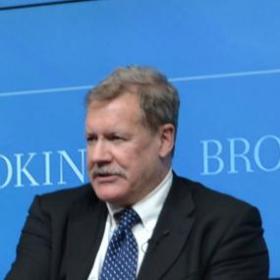
Bridging Fault Lines
Southwest Asia's future depends on increased cooperation among countries in the region to confront diverse military and human security problems, and the Euro-Atlantic community can play a supporting role, according to an EastWest Institute discussion paper.
This region has few effective regional security organizations and none that attempt to bridge the main divides, the paper finds. It calls on the states of the region to commit on their own terms to the long-term goal of bridging serious geopolitical fault lines.
This goal, according to the report, holds out the promise of embedding the most serious and intractable conflicts in a wider regional vision to create new incentives and mechanisms for reducing tensions. The experience of Northeast Asia, Southeast Asia, Africa, and Europe shows that bridging fault lines is not only possible but essential in times of high tension, military confrontation and military build-up.
"Russia, Turkey, the United States and the EU need to have a clearer, common plan for long term security in and around Iran, the Persian Gulf, Pakistan, and Afghanistan," said EWI Professorial Fellow Greg Austin. "This paper offers one element of that missing 'shared vision.'"
The paper provisionally defines the region as including: Afghanistan, Bahrain, Egypt, Iraq, Iran, Israel, Kuwait, Lebanon, Oman, Pakistan, Palestine, Qatar, Saudi Arabia, Syria, the United Arab Emirates, Yemen, and adjacent maritime areas. Though a final grouping could be different, this region stretches across cultural and political divides and lies at the center of global energy supplies, existing military conflicts, and other ongoing tensions.
One way to understand the importance of a regional grouping, the paper argues, is to look to Southeast Asia as a possible model. In the mid-20th century, Southeast Asia was the highly militarized site of several international and domestic conflicts. By 2000, regional organizations such as the Association of Southeast Asian Nations (ASEAN) had helped promote economic growth, international cooperation and increased stability. The region has been fundamentally transformed.
The paper emphasizes that Southwest Asian states must take the lead in a solidified regional framework, but the Euro-Atlantic community can play a significant role by encouraging the development of new organizations through funding and facilitating track-2 dialogues and developing various region-focused programs.
You can also read Greg Austin's column on this work for New Europe. Follow this link and turn to page 5.

